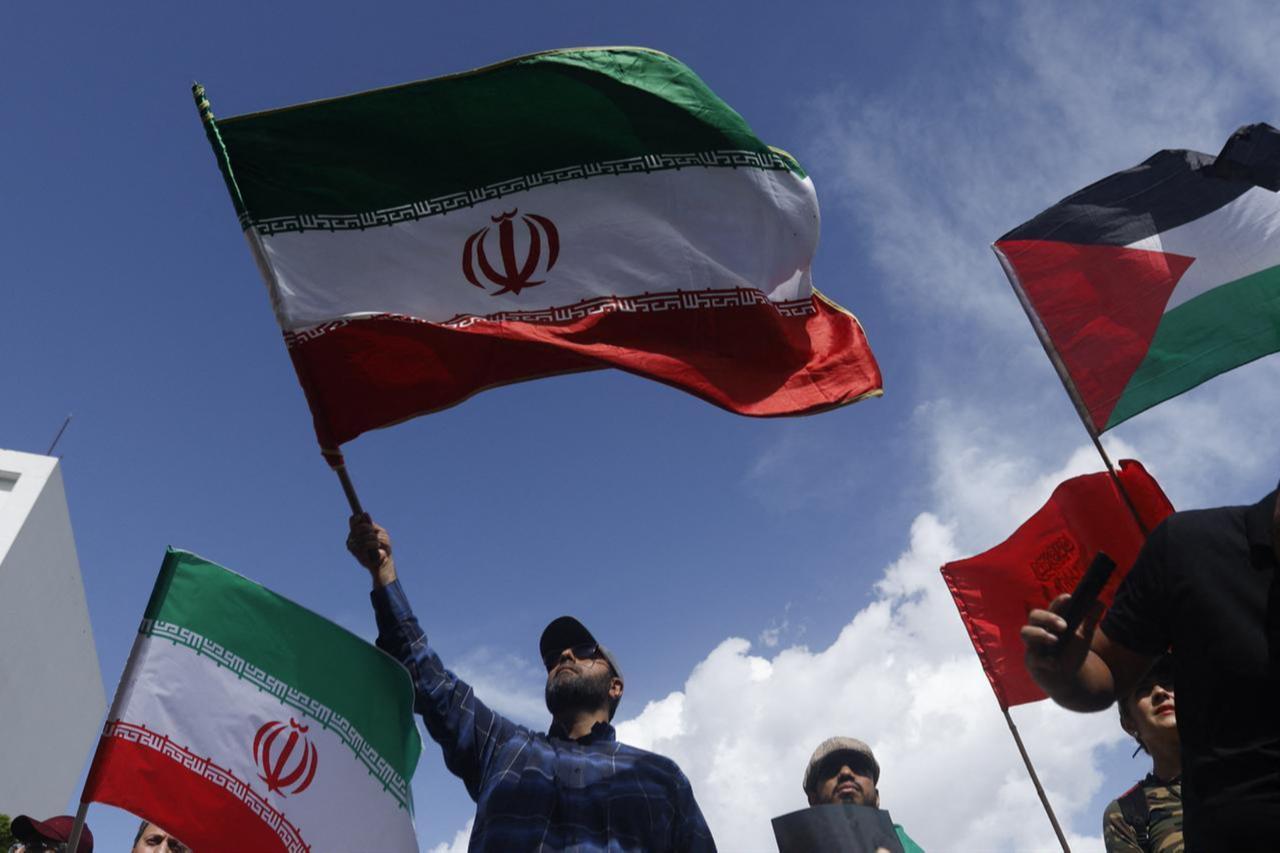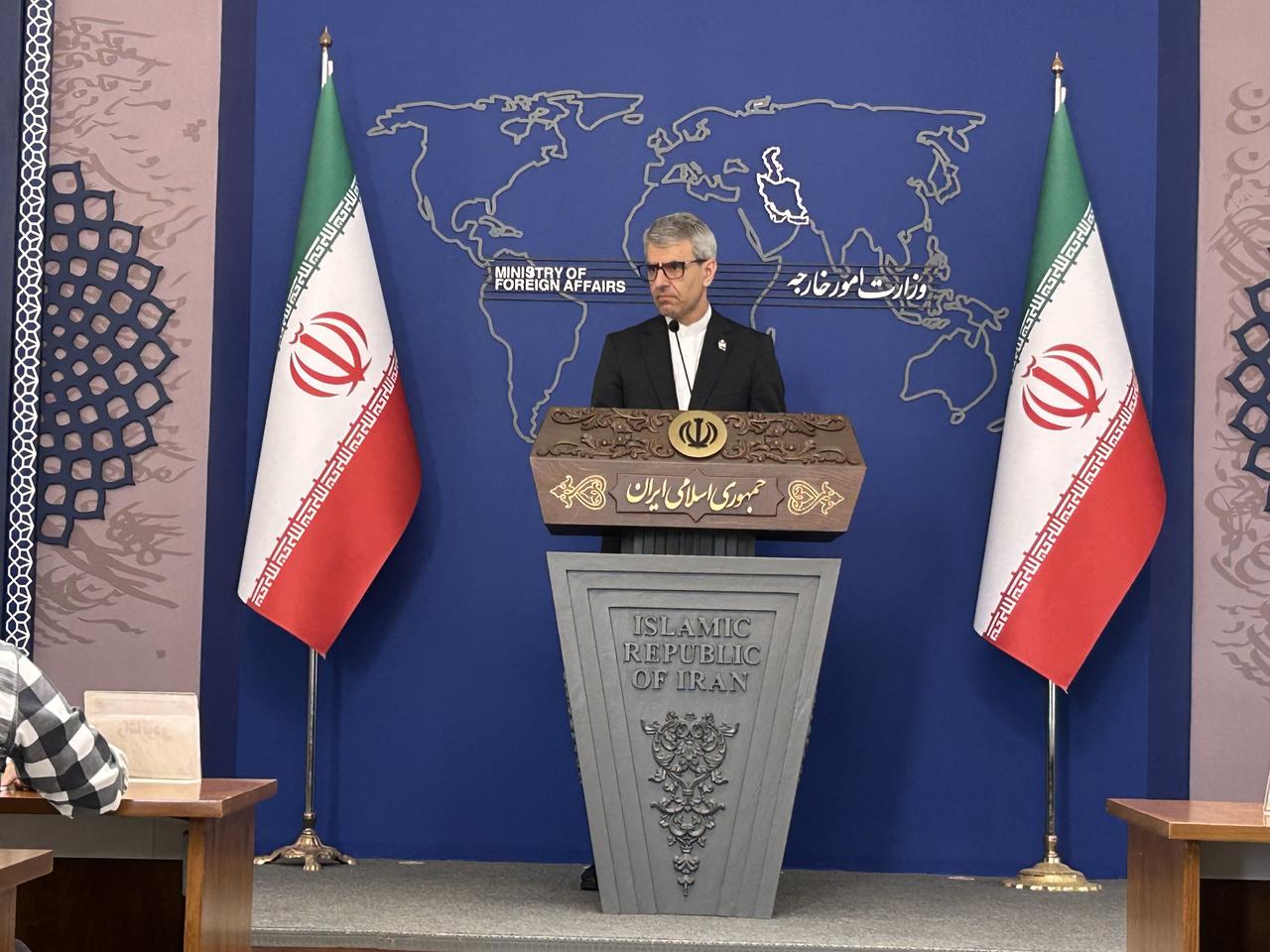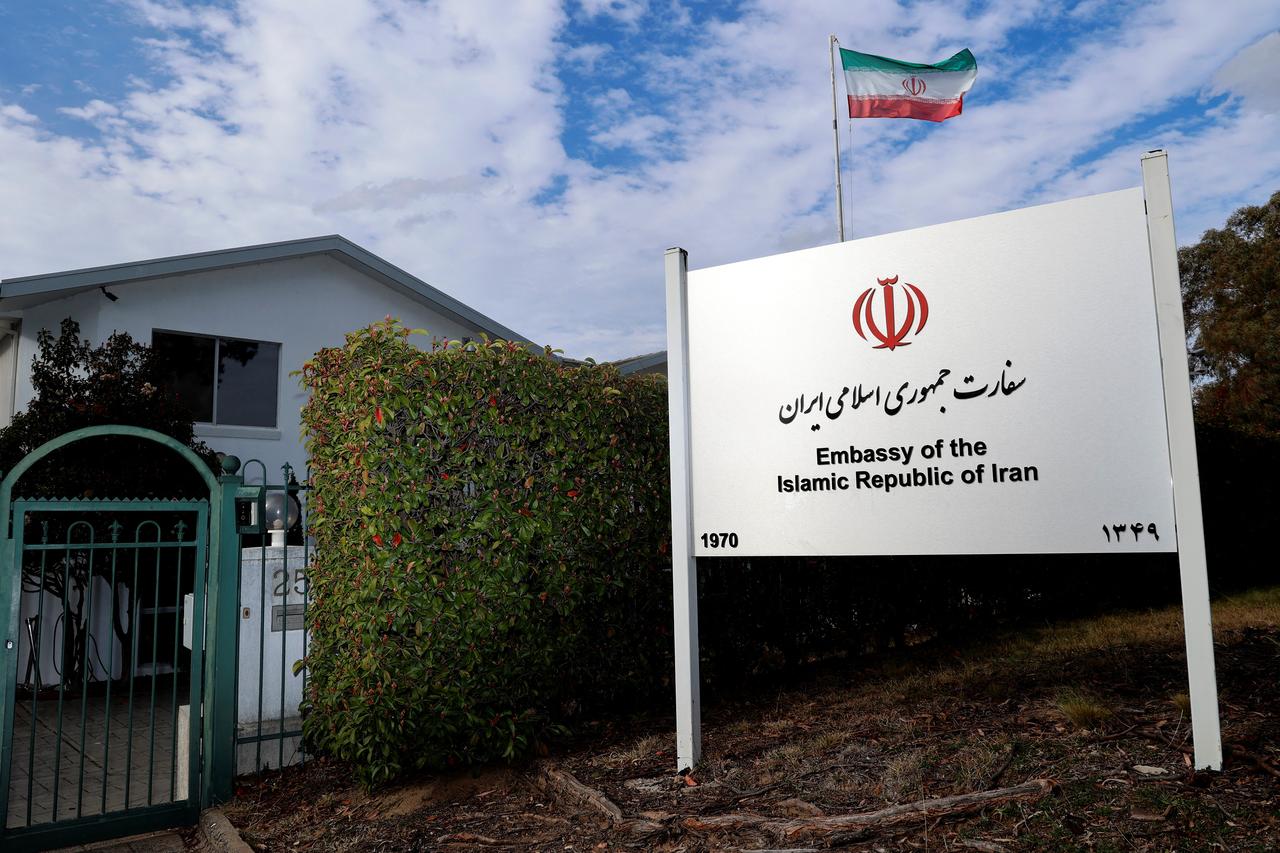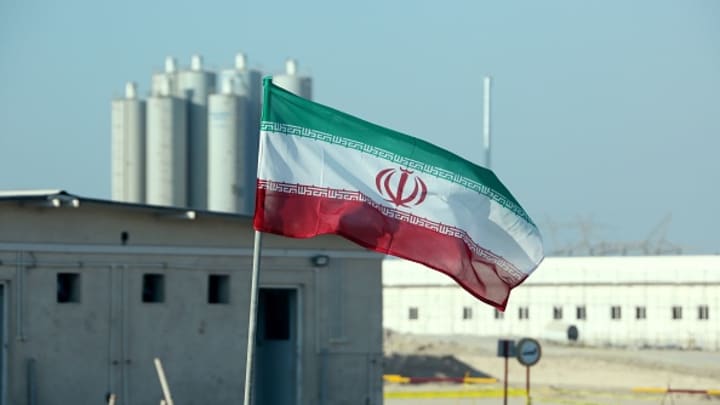
Iran's Foreign Ministry spokesperson Esmaeil Baqaei stated that European parties to the 2015 nuclear deal have "neither legal nor moral legitimacy" to trigger the snapback mechanism that would reimpose United Nations sanctions on Tehran, according to Iran's official news agency IRNA.
Senior officials from Iran and the E3 powers—Britain, France and Germany—are scheduled to meet Tuesday in Geneva to discuss Western demands for resumed nuclear inspections and diplomacy, with the Oct. 18 deadline for the snapback mechanism approaching.

During a press conference at the Foreign Ministry building in Tehran, Baqaei addressed threats by European nations to invoke the mechanism, stating: "European parties have neither legal nor moral legitimacy to use this mechanism."
The Iranian spokesperson expressed concern about the consequences of triggering the mechanism, adding: "If the European parties to the nuclear agreement had fulfilled their commitments, we would not face such situations, and Iran would not have used its right to reduce its obligations under the agreement."
British Foreign Secretary David Lammy warned Monday via social media platform X: "We are committed to diplomacy, but time is running out."
He added that Britain offered Iran a diplomatic solution with an extension of sanctions relief, but "if there is no verifiable and permanent agreement, this process will end."

Iranian Foreign Minister Abbas Araghchi and Russian Foreign Minister Sergey Lavrov discussed the issue in a phone call, with both ministers agreeing that European countries lack the legal and moral basis to trigger the snapback mechanism.
According to IRNA, the two ministers noted that European countries violated U.N. Security Council Resolution 2231, which supports the 2015 nuclear deal, by supporting U.S. and Israeli attacks on Iran's nuclear facilities.
Araghchi emphasized that any decision to extend the deadline for Resolution 2231, which contains the snapback mechanism, falls under the responsibility of the U.N. Security Council.
The Joint Comprehensive Plan of Action (JCPOA) was signed on July 14, between Iran and the five permanent U.N. Security Council members plus Germany, limiting Iran's nuclear activities in exchange for sanctions relief.
The United States unilaterally withdrew from the agreement in 2018 and reimposed sanctions on Iran. Despite opposing the U.S. action, European countries failed to take steps to compensate for American sanctions as Tehran had requested.
Iran began gradually suspending its commitments under the agreement one year later and subsequently pursued high-level uranium enrichment activities.

The Geneva meeting between deputy foreign ministers follows a July 25 gathering in Istanbul, where parties agreed to continue negotiations. Iranian representatives Majid Takht-Ravanchi and Kazem Gharibabadi will attend the talks.
"We are going to see whether the Iranians are credible about an extension or whether they are messing us around. We want to see whether they have made any progress on the conditions we set to extend," one E3 official said.
European conditions for holding off on the snapback mechanism include resumption of U.N. inspections, accounting for Iran's enriched uranium stockpile, and engaging in diplomacy, including with the United States. Iran has repeatedly ruled out direct talks with Washington.
Baqaei warned in a July 14 statement that if Britain, France and Germany trigger the mechanism, Tehran would consider it "equivalent to conflict" and would respond accordingly.
Iranian officials have announced they would reconsider their membership in the Nuclear Non-Proliferation Treaty (NPT), which they have been party to since 1970, if U.N. sanctions are reimposed.
The talks were scheduled to begin behind closed doors at 3:30 p.m. (1:30 p.m. GMT) Tuesday, according to Iranian media reports. The European Union, which serves as coordinator of the 2015 deal, was also expected to attend.